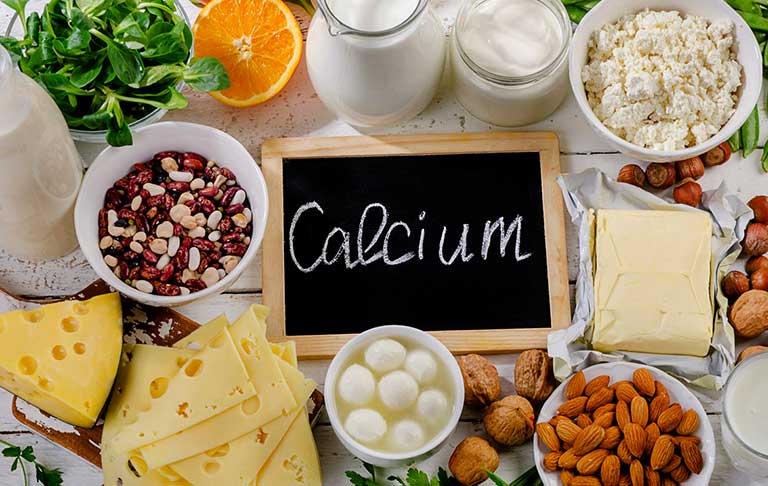Calcium is the most abundant mineral in your body. The skeleton contains 99% of the body’s calcium. It is essential for the development and maintenance of strong bones and teeth. Calcium also helps other body systems to work properly including the heart, nerves, muscles.
For us to function well, our bodies rely on all the systems to work together. If one system doesn’t work properly, then our bodies can’t function properly. The same concept is true for the nutrients in the body. They do not operate alone but must have other nutrients to be effective and be absorbed properly. This is why not only we can’t take calcium by itself, but it can also potentially dangerous. Studies show that calcium supplementation alone has the potential of increasing the risk of bone fracture, particularly hip fractures in older women. It’s important that you don’t grab any old supplement off the shelf.

ARE CALCIUM SUPPLEMENTS SAFE?
Besides being ineffective for bone health, calcium supplements can lead to some potentially serious health risks.
Calcium is a game of co factors, it depends heavily on the actions of several other vitamins and minerals, including vitamin D, magnesium, vitamin K2, and zinc. Without these, calcium supplements are not bioavailable and can be dangerous.
- Vitamin D functions like a steroid hormone in the body and helps the body use calcium.
- Magnesium acts as a counter-balance for calcium, and is required in balance with calcium for heart health and proper muscle function.
- Vitamin K2 activates the protein osteocalcin found in bones, which allows the bones to “hold on” to calcium. Additionally, it guards the arteries from calcium deposits.
In fact, a 2012 study published in the British Medical Journal found that those who took calcium supplements had a 139% higher risk of heart attack, though this increased risk was not present when the same amount of calcium was consumed from whole food sources.
Other studies have shown the same findings:
- Calcium supplementation isn’t correlated with bone health. This study in the Journal of Clinical Nutrition showed that calcium supplementation doesn’t reduce fracture rates in older women.
- Calcium supplementation is correlated with increased heart disease. This study of 24,000 people found that those taking calcium supplements had a 139% greater risk of heart attacks during the 11-year study (compared to calcium-rich foods that did not increase the risk).
- A recent study published in the American Journal of Clinical Nutrition showed that calcium supplementation increased risk of kidney stones and prostate cancer.
WHOLE FOODS ARE THE BEST SOURCE OF CALCIUM
People have built strong bones without calcium supplements for centuries. After all, real food is the best source of both calcium and calcium cofactors!
- Grass-Fed Dairy products
- Canned, bone-in fish (e.g., sardines, salmon, etc.)
- Dark, leafy greens
- Seeds (especially poppy and sesame)
- Almonds
Take Moringa Instead!
The sheer number of nutrients found in moring brings it to the top of the superfoods list and in its native locations it is said to have the ability to help treat more than 300 diseases and illnesses.
To give you an idea, just a single serving of the Moringa tree contains:
- 4 times the amount of calcium in the same amount of milk
- more vitamin C than 7 oranges
- double the protein and 3 times the amount of potassium in a banana